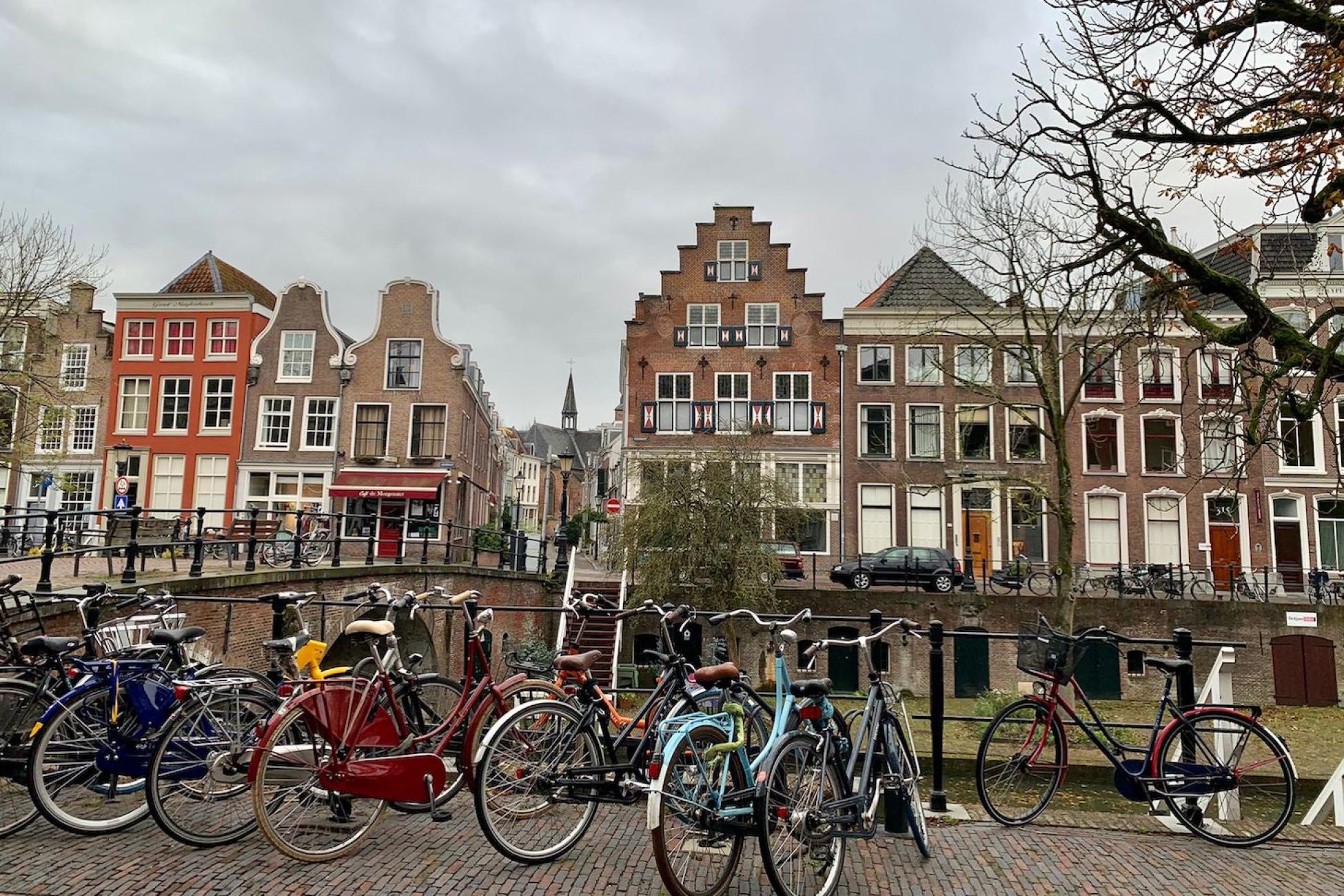For three years, I wondered how the southern California sky was so blue, day after day, to the extent that I started taking it for granted. I would open the windows in the morning and pray for some rain.
The weather gods must have been eavesdropping because—when I landed at eight in the morning at Amsterdam’s Schiphol airport—the sky was still dark, the city seemingly asleep. I muttered a “f**k” to myself and prayed for April to come soon. (I had visited the Netherlands in April six years ago and loved the Keukenhof tulips.) Now, I cursed myself for making fun of friends who stayed in Portland, Oregon, which also has similar weather. It couldn’t be all bad, I thought. After all, I had read that the Dutch got the most exercise minutes per week. I just need to figure out the trick, as I had, in the places abroad I had lived before.
I was still hungry from the flight. KLM is supposed to be the “Royal Dutch” airline. Why couldn’t they serve more food? Or maybe the unreasonable American portions had spoiled me. I shouldn’t forget my Indian roots.
Immigration was a breeze (which is how it should be)—unlike US immigration, which is no less than going to war for a non-Westerner. The Dutch official did not care to look at my documents. He looked at my visa and asked, “You’re going to live here?” That was it. USA’s famous immigration system has transported me from the Americas to Europe. I was not selected in the H1B lottery for work visas multiple times, thus my company decided to move me to their Dutch headquarters. I would continue working as an electrical engineer.
Having collected the bags from Schiphol, this is where the roller coaster began. Though I had one more suitcase than my two hands could manage, I figured that the journey to my Eindhoven apartment was easy-peasy. Take the direct InterCity to Eindhoven Centraal station, where a taxi would be waiting for me to take me to my apartment.
But I forgot that my adult life has been a living testament to Murphy’s Law. Soon after boarding the train, there was an announcement (in Dutch, which one co-passenger translated for me) that, due to ongoing construction work at Eindhoven Centraal, this train would only go till Den Bosch. As a workaround, we had to first take the train from Den Bosch to another stop, Boxtel, where a bus would then take us to Eindhoven. I looked at my luggage and muttered “f**k” again. I understood this was an anomaly—but I also felt for Westerners who visit India, where such incidents can happen with surprising regularity.
Having made it to the apartment, I went out to get a travel adaptor (among some other things I had forgotten). While creating a store account, the customer associate looked at my California driver’s license and said, “Nice weather there, huh, and look at this outside.” I smiled. This won’t be the first time I will be hearing this.
When I opened the windows on Monday morning, a different kind of sight greeted me. There was an onslaught of bicyclists on the road, as if they were participating in a competition like Tour De France, except it was more casual. Barely anyone wore helmets. Some ferried kids. I won’t be a spectator for long because my office is eight kilometers away, and bicycles are the de facto mode of city transportation in the Netherlands.
The first bike ride to work was a struggle, as I had to keep stopping and checking my phone with my gloveless hand for directions. Later that day, when I was returning home and had barely traveled a kilometre, a senior engineer I was talking to while leaving work, materialized out of thin air and beckoned me to follow him, instead of Google Maps. He led me through what he called the “cyclist route,” one with minimal traffic lights that traversed forests and brooks, and Google was in the dark about. I was impressed to think the human experience could still outperform technology.
When I reached home, parking the bike was another challenge. I was living in temporary company-provided accommodation, one that disallowed bikes indoors. Bike theft was a major problem, something I still found hard to grasp in a Western nation. Having lived in Japan, I was used to keeping my wallet and phone on the ground, going for a run, and coming back to retrieve them. I parked in a well-lit spot next to a supermarket next to my building and prayed it would still be there the next day.
Thus, our perceptions could be deceiving. Even rich countries are besotted with problems that plague people in poorer countries every day.

